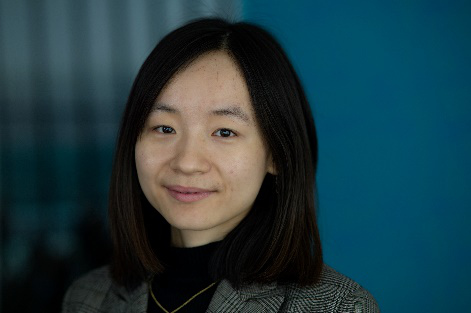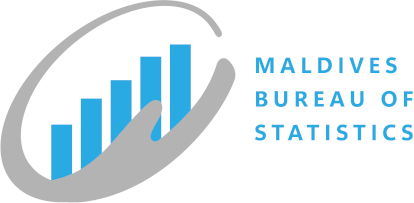
31st International Input-Output Association Conference
and
13th Edition of the International School of I-O Analysis
6th - 11th July 2025, Malé, the capital city of the Maldives
|
|
Keynote Speakers
Introduction to the Plenary Sessions
For the 2025 IIOA Conference in Malé, we will have three Keynote Speakers for the Plenary Sessions and one InspIO speaker.
Plenary Sessions
The Plenary Sessions will be on Tuesday, Wednesday and Thursday and of the conventional type. Each session will last one hour, of which 40-45 minutes will focus on the presentation followed by 15-20 minutes for questions and answers. The Keynote Speaker and chair for each Plenary Session will be:
Professor Robert Koopman, Hurst Senior Professorial Lecturer at American Universities School of International Service.
Chair of session: Satoshi Inomata
Professor Jing Meng, Professor at the Bartlett School of Sustainable Construction, University College London.
Chair of session: José Manuel Rueda-Cantuche
Mahinthan Joseph Mariasingham, Principal Statistician and Project Officer at the Asian Development Bank.
Chair of session: Sanjiv Mahajan
Background to the Keynote Speakers
It is the honour of the IIOA, the LOC Chair and the SPC Chair to welcome all guest speakers to the 31st IIOA Conference. More details on their career profiles and presentation themes are provided below.
Professor Robert Koopman – Career profile

|
Bob is currently Hurst Senior Professorial Lecturer at American Universities School of International Service where his research focuses on the impact of trade and trade policy on economic development and growth. Bob is also currently Editor-in-Chief of the Global Value Chain Development Report, 2025 and Senior Academic Advisor to the Research Institute for Global Value Chains at the University of Industry and Business Economics in Beijing. Bob previously served as the Chief Economist of the World Trade Organisation and an Adjunct Professor of International Economics at the Graduate Institute, Geneva from 2014 to 2022. At the WTO, Bob served as Chief Economic Counsellor to the Director General and provided the WTO Secretariat and Member Countries with analysis and information that promoted a deeper understanding of trade and trade policy's role in economic growth and development. Bob also served as the WTO representative to the G20 Trade and Investment Working Group and the G20 Framework Group. Bob is a research associate of CEPR, London, serves on numerous advisory boards, and is an editor of the Springer Series on Advances in Applied General Equilibrium Modelling. |
Between 1999 to 2014 Bob served as Chief Operating Officer and Chief Economist at the United States International Trade Commission. Bob also previously served as Deputy Administrator for Economic and Community Systems at what is now the National Institute for Food and Agriculture, USDA, and various research leadership and analyst positions at the Economic Research Service of USDA from 1985 to 1999.
Bob’s presentation theme
As strategic competition now plays out through trade, finance, and technology, the tools of input-output economics have taken on new significance. Input-Output Tables, long used for understanding trade and specialisation, are now being used to map strategic vulnerabilities in global value chains. How do these tools inform national security policy, economic resilience planning and the assessment of geoeconomic power? Drawing on recent theoretical and empirical work - including a new network-based model of economic coercion - I argue that input-output linkages are central to understanding the dynamics of fragmentation, sanction evasion and decoupling. Input-Output analysis is at the heart of developing a better understanding of policy-relevant trade analysis.
Professor Jing Meng – Career profile
|
Jing is a Professor at the Bartlett School of Sustainable Construction, University College London and a Fellow at the Cambridge Centre for Environment, Energy and Natural Resource Governance. She has extensive expertise in the development of MRIO models and their application to real-world sustainability challenges. Jing has an outstanding publication record in leading international journals, including PNAS and multiple Nature journals (Nature Energy, Nature Geoscience, Nature Communications, Nature Climate Change, Nature Water and Nature Sustainability). Jing’s research excellence has been recognised through prestigious academic awards such as the 2023 American Geophysical Union Global Environmental Change Early Career Award and the MIT Technology Review Innovators Under 35. Jing has also been named a Clarivate Highly Cited Researcher (cross-field) from 2020 to 2024, with her work receiving extensive media coverage and influencing global policy discussions. |

|
Jing’s presentation theme
The Global South plays a critical role in global supply chains and environmental sustainability. Recent advancements in MRIO modelling, particularly the EMERGING MRIO framework, provide new insights into trade dependencies, value added flows and resource use, addressing long-standing data gaps and methodological limitations. This presentation will highlight how these innovations enhance the representation of developing economies, improve the tracking of global value chains and offer more robust tools for assessing sustainability and policy interventions. By integrating high-resolution data and real-time analytics, these advancements provide a more accurate picture of the Global South’s position in the world economy, informing strategies for equitable growth, climate action and resource governance.
Mahinthan Joseph Mariasingham – Career profile

|
Joseph is a principal statistician and project officer at the Asian Development Bank (ADB). Since 2015, Joseph has been leading ADB’s statistical capacity building and knowledge development projects across many countries related to the system of national accounts, global value chains, innovative data, digital economy, environmental accounting and statistical business registers. Joseph also oversees the compilation of the ADB’s flagship statistical product, the multi-regional input–output tables. Prior to joining ADB, Joseph worked for Statistics Canada as a statistician for more than 15 years. Joseph obtained his master’s and bachelor’s degrees in economics from Queen’s University, Canada. |
Joseph’s presentation theme
In a world increasingly characterised by global inter-connectedness and inter-dependence, notwithstanding the ever evolving physical and policy barriers to interaction and trade, the seminal work of Wassily Leontief is more relevant now than ever before. Despite the enthusiasm it generated initially, this body of knowledge could not gain the level of real-world traction it deserved largely due to its extensive data requirements and computational complexities. However, with the onset of the rapid globalisation, especially since the 1990s, Leontief's input-output analytical framework is seen as an essential mechanism to discern and analyse the complex international inter-dependence of supply and use of goods and services. This address seeks to underline the relevance and criticality of the Leontief's insight as a facility for statistical compilation, economic analysis and policy formulation in today's world. This also highlights the initiatives taken by governments and international organisations to institutionalise the production of supply and use tables, input-output tables and the application of input-output analysis.
InspIO Talk
One innovation at the 2019 IIOA Conference was the introduction of a new format applied to one of the Plenary Sessions. This year, we will have again an InspIO Talk to be held on the Wednesday, 9th July 2025.
The InspIO Talk will be around 30 minutes, high-level, note-free and slide-thin presentations. The Speaker will be required to focus more on key messages and are encouraged to use memorable visual aids. The InspIO Talks are attempting to engage and excite the audience in a similar way to the well-known TED talks. The talk will be include 15 minutes of questions and discussion.
|
The 2025 IIOA Conference InspIO Talk will be given by:
|
 |
Yasuyuki will cover the analysis of supply-chain resilience using data at the firm, establishment and product levels.
In recent years, propagation of economic shocks through supply chains has been extensively studied because supply chains have often been disrupted in practice due to natural disasters, pandemics, and conflicts. Many studies use international input-output tables to analyse this issue. One disadvantage of this methodological framework is that it ignores the complexity of supply chains at the firm or establishment level and thus may undervalue the propagation of shocks through supply chains.
Therefore, Yasuyuki and his co-author, Hiroyasu Inoue of the University of Hyogo, have utilised firm-level data for Japan that identify most major domestic supply chain links among Japanese firms to analyse the shock propagation due to the Great East Japan earthquake in 2011 and the COVID-19 pandemic in 2020-21. Further, they merged firm-level trade data with the supply chain data and analysed the effect of hypothetical disruptions of trade between Japan and selected countries and regions. Most recently, they used census data that can identify products for each establishment (not firm) and constructed supply chains at the establishment level with product information to examine possible differences in the propagation effect between firm and establishment level networks. This presentation will summarise the results from their analyses and provide implications on the resilience of supply chains.

|

|

|

|